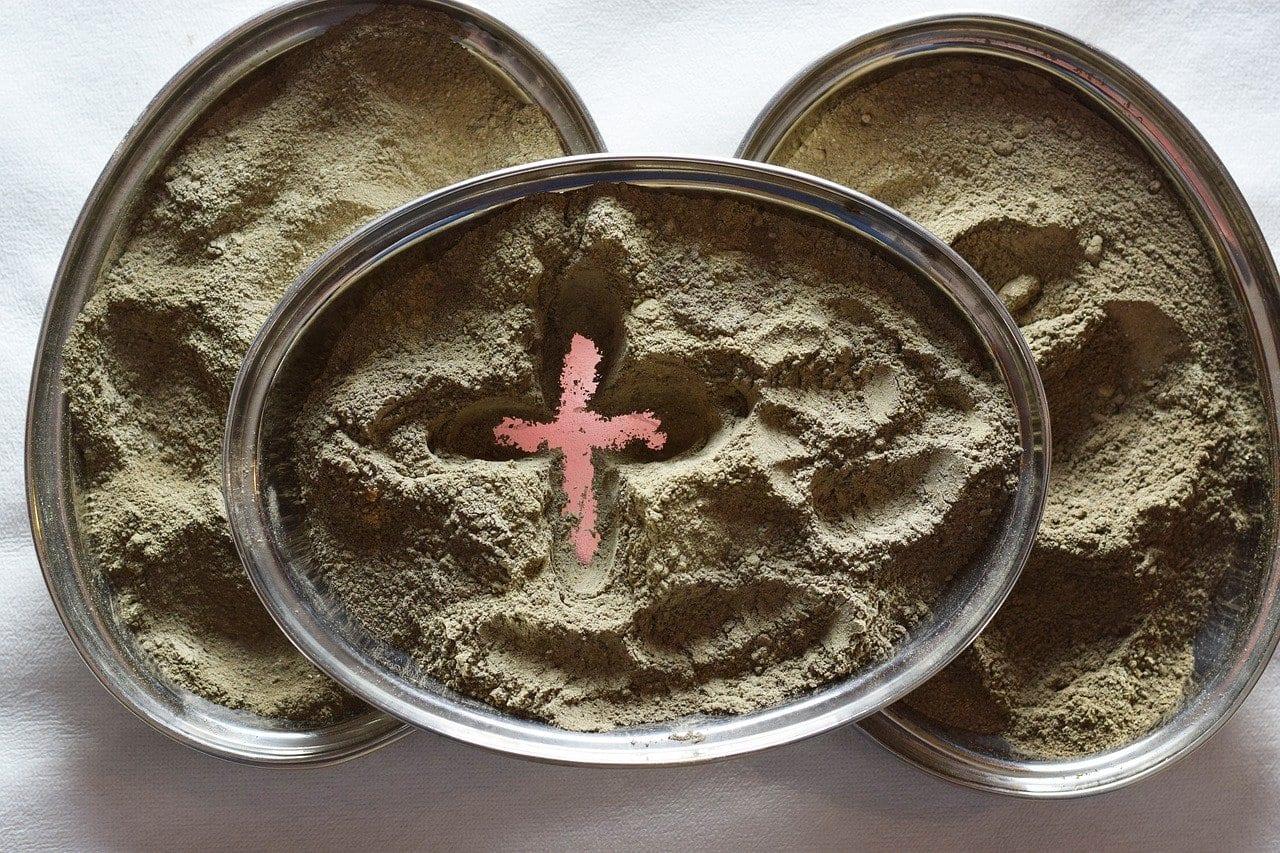This coming Wednesday, Christian believers throughout the world will allow themselves to be sprinkled or marked with ashes. It’s an ancient tradition, and yet for the sidewalk observer, it’s a peculiar custom.
Why the ashes? What’s the story here?
Ash Wednesday begins the forty-day penitential season of Lent. The ashes are received and worn as a public declaration that we are sinners, works on progress, and suppliants before the mercy and grace of God.
Yes, simple ashes announce these humbling admissions of our souls to the rest of the world. They speak a sobering message of our human weakness before God and our neighbor. And for believers – at least those who know what’s going on – there couldn’t be a better or more transparent way to start Lent.
Lent is about accepting who we are. It’s acknowledging the bad news that is oftentimes in our hearts and in our world. It’s about confessing our fallenness. Lent is the season of self-honesty. It’s a time when we can put away the masks and bring down the facades. Lent opens a forum where we can admit to ourselves, and to those around us, that we are sinners and in need of divine help.
By acknowledging the sinfulness in our souls, such sinfulness loses its power over us. By confessing our sins, we realize their interior weakness and futility. By removing the frenzy of pride – which is fueled by our efforts to hide or justify our sins – we are able to see a different way of life. Such clarity clears away the fog of confusion or uncertainty. And with such haze removed, we are able to see a new and brighter path. We are able to see our dignity and true worth as the children of God and are shown the life-giving way of love and reconciliation.
In this process, light dispels darkness, healing overcomes brokenness, and freedom vanquishes the slavery of sin. We are blessed with clarity of mind, integrity of heart, and liberty of will.
Lent is the season of confessions and of freedom in Jesus Christ. It’s the season of conversion and re-creation by grace.
The humbling disclosure of our souls that we are sinners, without excuse or explanation, opens us up to the real work of Lent. And it’s this Lenten work that defines the penitential aspect of the season. Lent doesn’t compel us to stay in a cesspool of shame or to sit in a permanent soiled state of guilt. It shows us our freedom by grace. Lent points us to the way of love and pushes us to pursue it and to labor tirelessly to live it more fully in all we do.
The work of Lent, therefore, relies on the Sermon on the Mount and the witness of the early Christians. As it reveals the way of the Lord Jesus, Lent echoes the call to fast, pray, and give alms. Such practices are given for our good, but also for the good of all the holy Church.
As Christians, we struggle for our own salvation by grace, but we do not labor alone. Lent calls us to holiness, just as it calls us to one another. Lent reminds us that the Christian journey is not a path that is made by ourselves. And the summons to community life is a part of the Lenten work. As the Book of Proverbs teaches us, as iron sharpens iron, so man sharpens his fellow man. And so, the Christian community is the laboratory and the gym of the Lenten season. It’s where the real, uncontrolled, and frequently messy work of Lent happens.
Lent, therefore, is a family celebration. It exists and thrives within the community of Christian believers. Our ashes are worn as a confession to ourselves, but also to those around us. Our Lenten observances are done for our healing, but also for the healing of our neighbors. In the Lenten season, we re-learn humility in reference to the fallenness of our own souls, as well as compassion toward the same fallenness in the souls of our neighbors.
And so, we fast, pray, and give alms as individuals and as a community. Our fasting is not only an abstinence from meat or a taking of smaller meals on certain days. It is also a fast from rash judgment and negativity. Our prayer is not offered solely by ourselves, but also with one another. We are vulnerable and die to our pride as we offer praise and supplication together. And we give alms, not simply money or charitable items, but also patience, kindness, a generosity of time, and peace to those closest to us. And we exercise meekness in admitting we need these from others and graciously accept them when they’re offered.
This is the living out of our confession. It’s the reason for the ashes. It’s the work of Lent.
Crux is dedicated to smart, wired and independent reporting on the Vatican and worldwide Catholic Church. That kind of reporting doesn’t come cheap, and we need your support. You can help Crux by giving a small amount monthly, or with a onetime gift. Please remember, Crux is a for-profit organization, so contributions are not tax-deductible.














